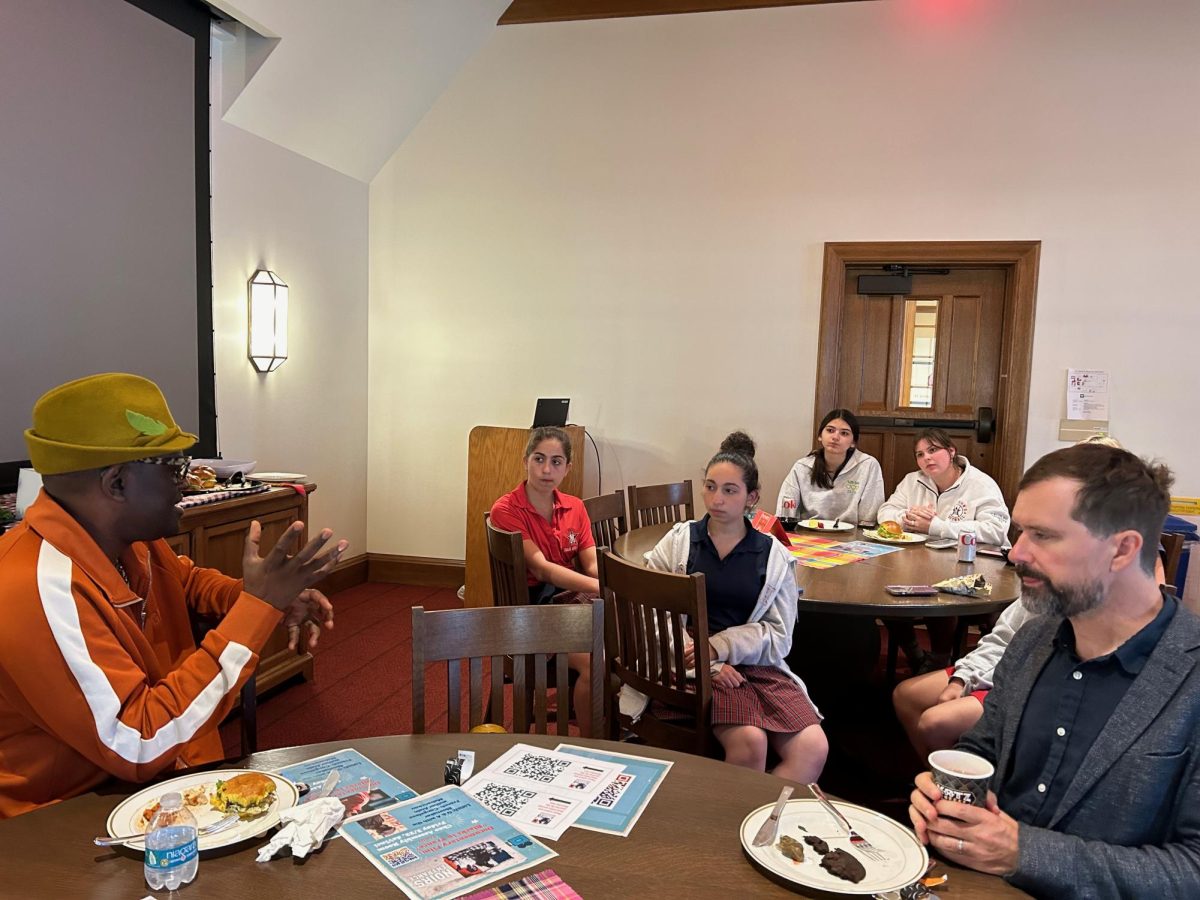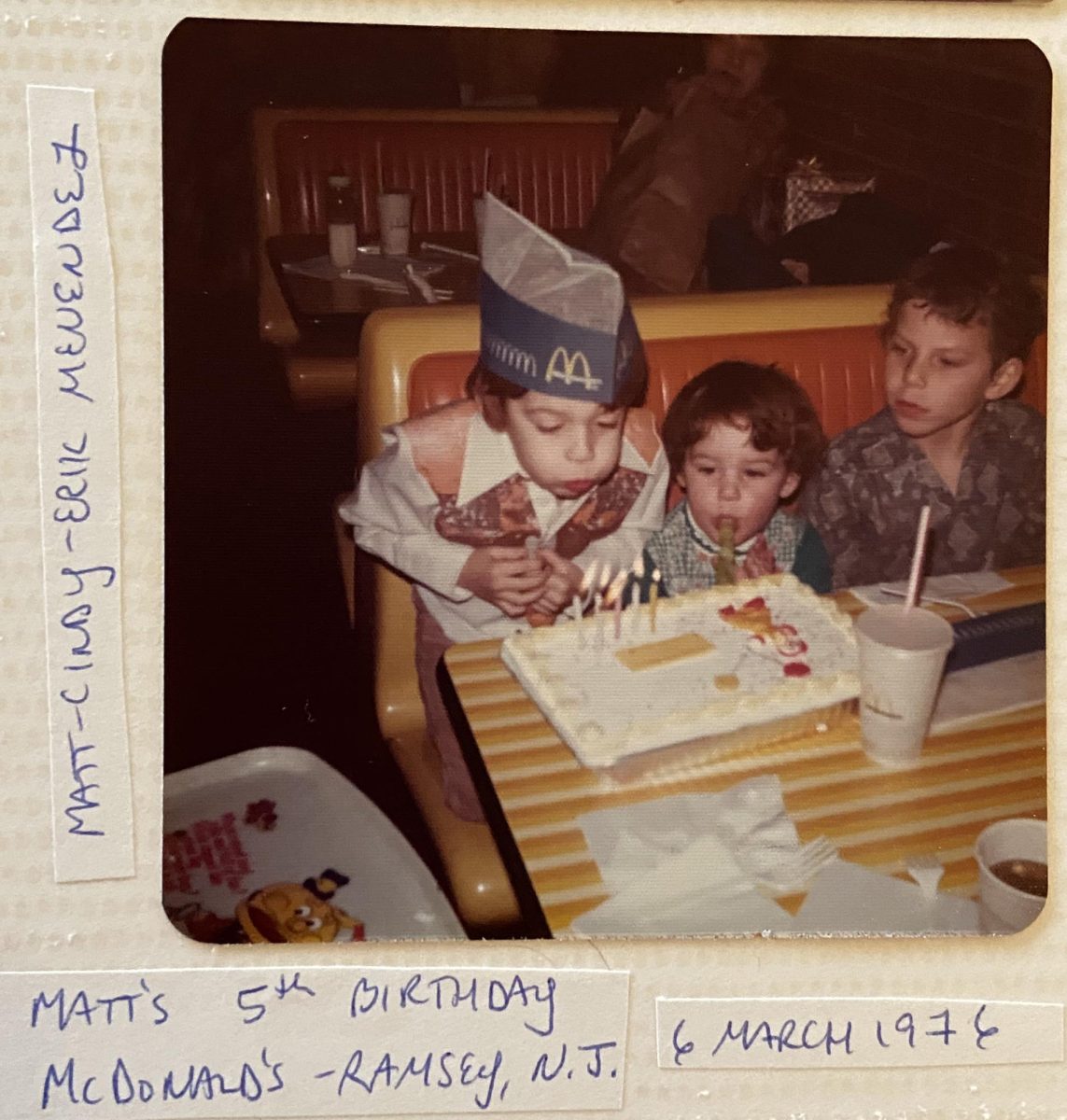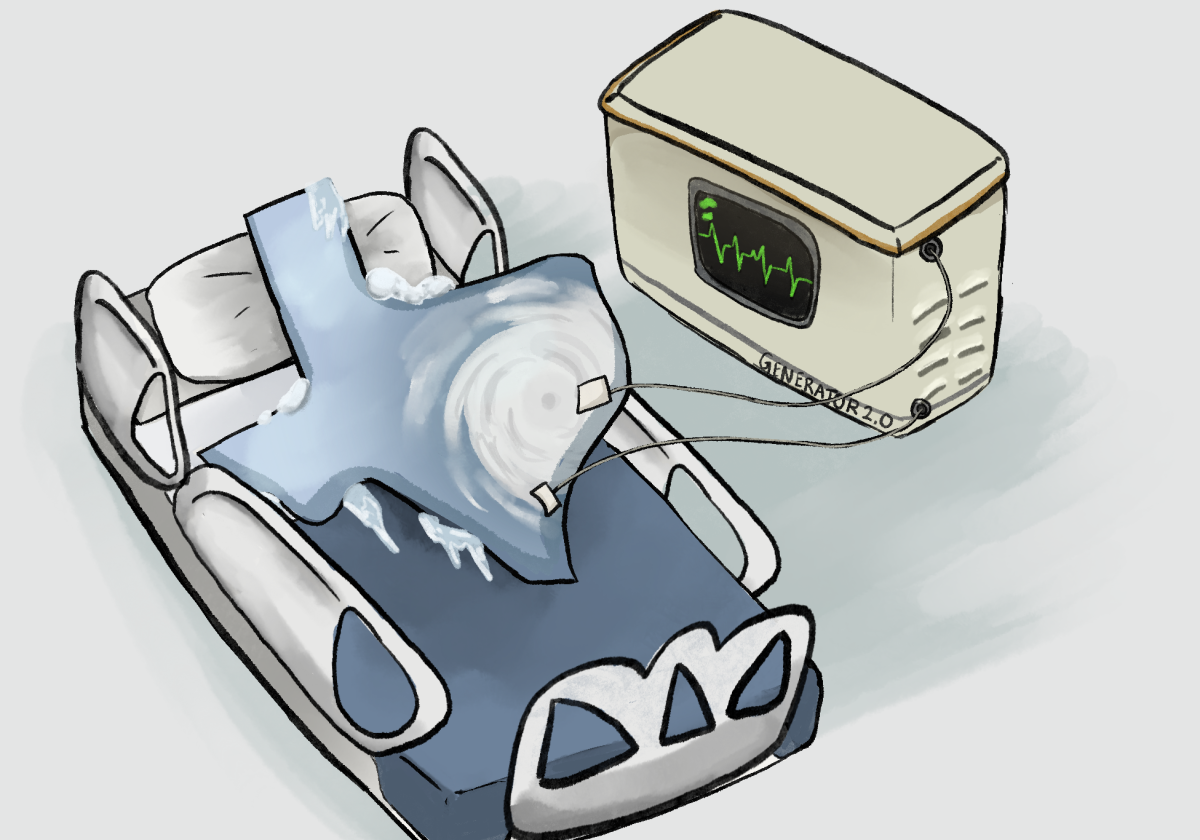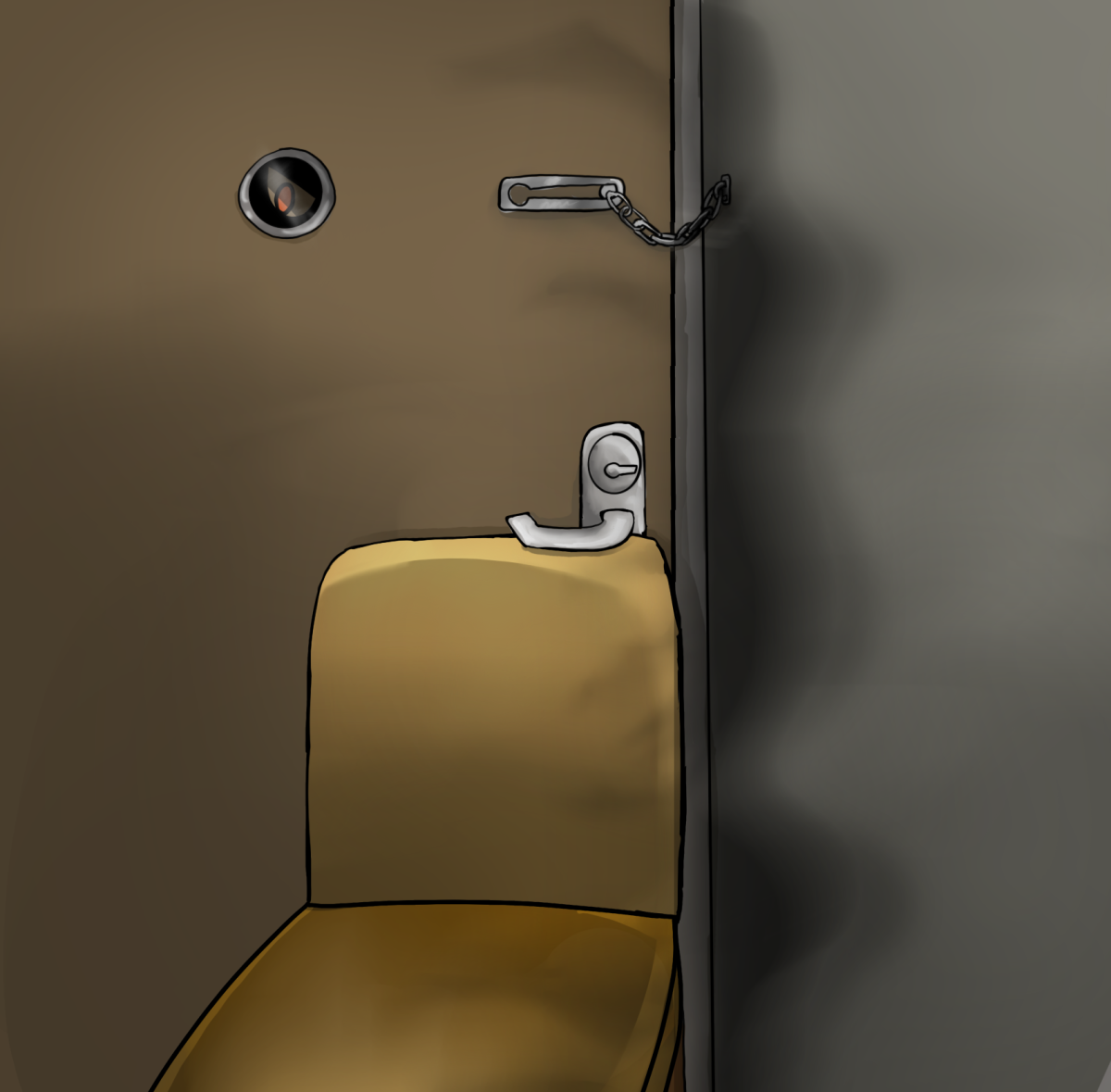In the 1940s, an experiment known as the “Doll” test produced footage of white children and Black children, who were asked to choose which doll they preferred – the white one or the Black one. That experiment showed the majority of the students choosing the white doll, regardless of their skin color.
More than seven decades later, a French documentary – “Noirs en France” – shocked audiences when it recreated the same experiment and showed that Black and white French children also chose the white doll.
The filmmaker, French-Congolese author Alain Mabanckou, came to campus to discuss the film, racism and the writing life last spring. He said the film used the doll experiment to showcase the struggles of the Black population in France that are unbeknownst to many French people. The film shows how the Black experience in France and the U.S. are closely tied. The Black Lives Matter movement has shed light on the attitudes of certain French people and helped promote understanding.
“It’s a movie about hope,” Mabanckou told dozens of students and faculty members gathered in the Chao Assembly Room. “It’s a movie about the future. It’s a movie to understand what is happening in France and maybe have a comparison with the United States.”
Mabanckou, who teaches literature and creative writing in the French and Francophone studies department at UCLA, says he made the film to reveal these attitudes to the French themselves. “French people sometimes without knowing it are carrying a lot of prejudice,” he said. “What can we do in order to change that?”
Students who watched the film were shocked to see examples of blatant and internalized racism at play in a modern-day European country.
“It was really interesting to compare the experiences and differences in culture between the US and France,” said freshman Maya Kadia, who watched the documentary in her French II class before attending a lunch with the author. “And I also was surprised to see how racism still shows up sometimes subconsciously even today.”
Mabanckou arrived on campus late due to a flight delay, and he showed up donning an electric-orange tracksuit and a fittingly feathered fedora. He easily chatted with both students and faculty, asking their names and wanting to know what they had thought of his film.
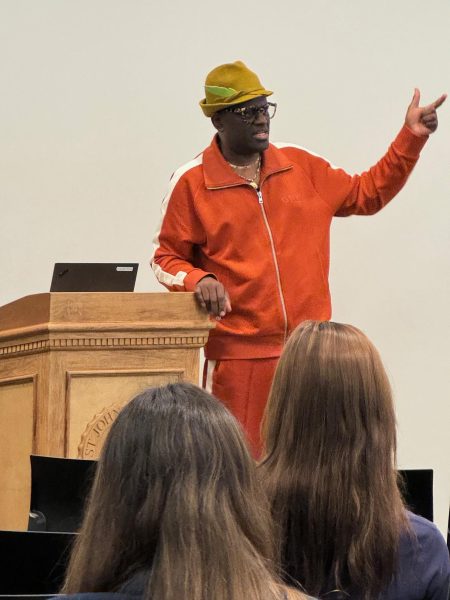
“I was greatly moved by the entire section that I saw,” junior Lauren Spivey wrote in response to the film. “Even though I’m not French, it is still so validating to see Black peoples’ stories being told, and I feel greatly for those children who were asked why they picked the Caucasian doll and said ‘because Black isn’t pretty.’”
French teacher and Review adviser Shelley Stein (‘88), who organized the event, said Mabanckou had been on her radar for a while when she discovered he would be in Houston to launch the French Cultures Festival. “I was trying to figure out ways I could use his work in my class.”
Stein first encountered Mabanckou when reading The Memoirs of a Porcupine, a novel tinged with magical realism that is inspired by stories Mabanckou heard from his mother as a child growing up in the Republic of Congo. The prize-winning book recounts the adventures of a porcupine who is the evil double of a serial killer and does his dirty work.
Mabanckou grew up an only child.
“When you’re an only child, you have to create a lot of activities to occupy yourself,” he said. “So I would often sit under a tree and write about everything.”
At 19, he moved to France to practice law and hone his writing craft.
He eventually left his law career behind to write full time. Originally, Mabanckou wanted to become a poet. As a teenager, he converted every emotional experience into a poem, he said. When he went to France, he had a large poetry book from his years as a teenager, expecting that he would easily publish his collection.
Not so: After being denied by several publishers, Mabanckou also came to realize that poetry was a hard sell – even in France. So he dedicated himself to becoming a novelist.
After hearing about one of his friends returning from jail, Mabanckou felt inspired to write about his friend’s experiences there. In 1998, he wrote his first novel, Blue White Red, which he marked as the start of his success.
In 1999, Mabanckou won the Grand Prix littéraire d’Afrique noire for his work, and he felt more motivated than ever to continue his journey as a writer. Since then, he has been shortlisted for the Man Booker International Prize and won more than a dozen accolades for his work.
For the next twenty years, he went on to write novels, poetry, nonfiction and childrens books in France. He also began to write scripts for films as a way to generate more income.
“To write a dialogue, you need to see something and feel like it’s real,” he said. “So when you have a job like that, you discover something new every day.”
When asked which of his works he prefers, Mabanckou offered a metaphor.
“Each book is like a part of yourself, like building a house. The door is as important as the window, the floor and the boards,” he said. “And I need a window in order to escape.”




